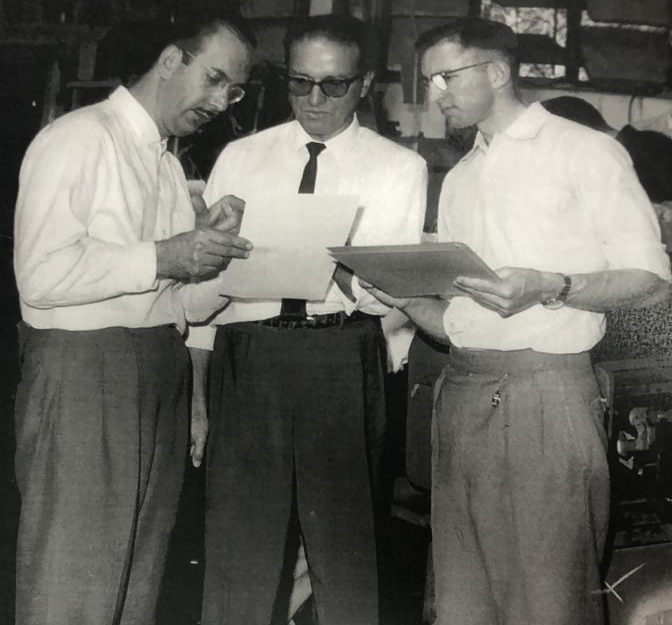The Manufacturing Processes Laboratory (LPF) is divided into two main areas located in two buildings: conventional manufacturing area (300 m2) in Building #1 and CNC manufacturing area (90 m2) in Building #2 (see “Contact and Location”). If areas of plastic injection processes and electro‑discharge machining (40 m2) are considered, the total area reaches 430 m2. The conventional LPF gives support to hands-on classes on conventional machining processes as well as to research projects from SEM and other departments by designing and manufacturing machines and devices for testing and experiments. The CNC LPF contributes to hands-on classes on CNC machining processes with facilities to carry out advanced machining and incremental forming experiments at macro- and micro-scale. Both LPF areas are capable of performing external services such as courses, training, tests, experiments, and characterizations in manufacturing processes. When added to other manufacturing laboratories e.g. Precision Engineering Laboratory (LEP/SEM), Composites and Tribology Laboratory (LTC/SEM), Simulation and Systems Laboratory (NEPAS/SEM) and Laboratory for Advanced Processes and Sustainability (LAPRAS) from Production Engineering Department (SEP/EESC), it can be named as “EESC Manufacturing Area”. For more details on research fields, please see “Staff”.

The Machine-Tools Laboratory (LAMAFE) began its activities in conjunction with the Metrology Laboratory in the 1960’s reaching notoriety under coordination of the Prof. Dr. Dino Ferraresi and Prof. Dr. Rosalvo Tiago Ruffino. In addition to teaching and researching activities, LAMAFE developed extension services to several governmental and privative industries as well as research centers and education institutions in 1970’s to 1990’s by covering fields such as mechanical project, manufacturing processes and metrology systems. With dismemberment from the Metrology Laboratory in 2000’s, LAMAFE was named Manufacturing Processes Laboratory (LPF). Currently, LPF is head office of the Manufacturing Innovation and Precision Engineering Research Group (IMEP) created in 2014.
With PhD from Technische Hochschule München, Prof. Ferraresi supervised several academic and scientific studies during his time at EESC. He wrote a lot of textbooks such as “Exercises about Elevation and Transport Machines” (1964) and “Metal Cutting” (1970) which became a classic textbook because there were no Brazilian textbooks. Even with the natural technological development in the machining processes this textbook is still used in engineering courses that consider manufacturing processes since it presents the metal cutting phenomena deeply. Various machining experiments carried out at the LAMAFE containing photos and calculations (graphs and tables) are described in the textbook. Prof. Ferraresi was also Head of the Mechanical Engineering Department (SEM).
Given his great projection as Head of the LAMAFE and SEM, Prof. Ferraresi and some colleagues from ITA were invited to compose a committee to create the Mechanical Engineering Course at the Campinas Faculty of Engineering (FEC) in 1969. In addition, he helped to nucleate the Mechanical Engineering Faculty (FEM/UNICAMP) as we know it nowadays. Prof. Ferraresi also created the Technological Center (CT/UNICAMP) in 1972 being its first manager for the next 15 years. Finally, he assisted to create the Graduate Program in Mechanical Engineering at UNICAMP with MSc and PhD degrees, respectively, in 1974 and 1975.
Pic.: Prof. Dr. Dino Ferraresi (1972)

Prof. Ruffino joined the first class of the Mechanical Engineering course at EESC in 1953, graduating in 1960. He began his activities as a professor in the Department of Mechanical Engineering in 1961 being coordinator of the LAMAFE, which had great prominence in the decades from 1970 to 1990. He was head of the Department of Mechanical Engineering in 1972-1974 and 1995-1999. He also served as Director of EESC from 1991 to 1995 in which aimed to implement his experiences from Massachusetts Institute of Technology, in the United States, and the Fraunhofer Institute, in Germany.
Pic.: Prof. Dr. Dino Ferraresi (left), CEO of the Romi Industry Sr. Giordano Romi (center) and Prof. Dr. Rosalvo Tiago Ruffino (right) in the 1960’s in Santa Bárbara d’Oeste-SP

To develop teaching for undergraduate courses in Mechanical Engineering, Mechatronics, Materials and Manufacturing, and Aeronautics at the São Carlos School of Engineering (EESC). To assist and carry out experimental research studies in manufacturing processes at macro- and micro-scale. To provide extension services in manufacturing processes.